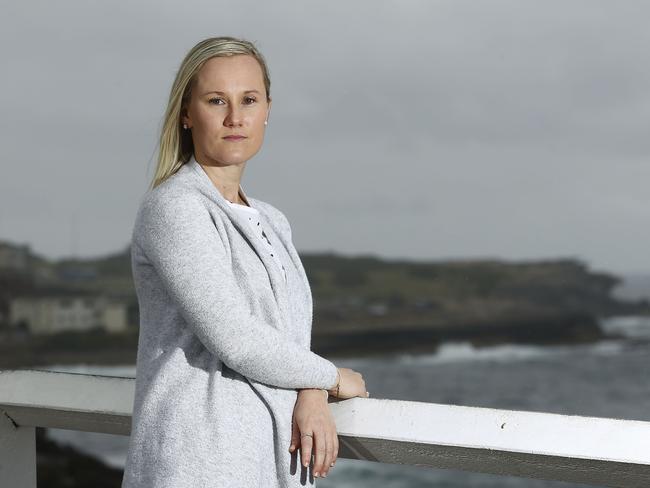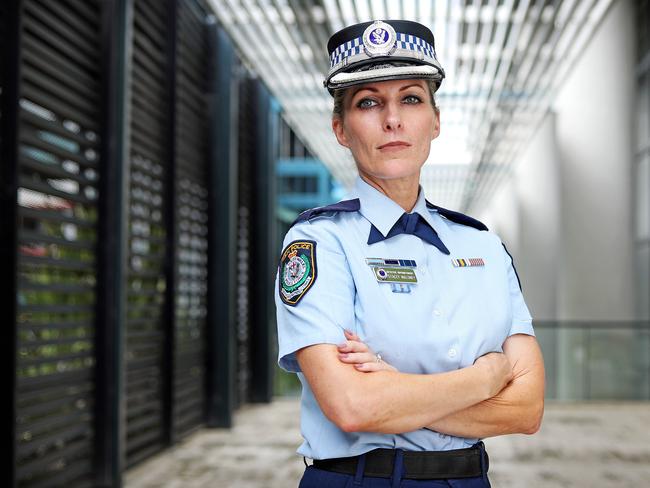World-first Tinder reforms to serve victims and fight sex predators
NSW Police have asked dating apps to use artificial intelligence to identify aggressive and coercive language and refer any sexual reports to detectives, in a world-first proposal.
Police & Courts
Don't miss out on the headlines from Police & Courts. Followed categories will be added to My News.
Dating apps will use artificial intelligence to “red flag” potential sexual attackers and immediately refer any reports of assaults to police under a world-first proposal to protect women.
The plan is being driven by the NSW Child Abuse and Sex Crimes Squad and follows multiple cases of rapists using dating app to find victims.

For several months, NSW Police and the US-based Match Group — which owns 27 apps including Tinder, Hinge and Plenty Of Fish — have been negotiating how to make the platforms safer and deter sexual predators.
Detective Superintendent Stacey Maloney said Match Group would create a portal to feed information about sexual assault reports and evidence needed in investigations to police.
“They have been very good at recognising that their brand can be somewhat damaged if they don’t support victims if there has been an incident that has stemmed from meeting on one of their apps,” she said.
It is also looking at bringing in law enforcement liaison officers, similar to a scheme that works at Uber.
Dating apps like Tinder don’t refer reports of sexual assault or stalking/intimidation and predatory behaviour it receives from users directly to police.
Instead, users receive a generic response, no response at all or are assigned “case officers”, who operate in call centres and are not trauma-trained.
This can allow perpetrators to continue using the app and contact other women or men.
One of the biggest criticisms of Tinder, raised in a Four Corners investigation last year, was how the app’s unmatch function facilitated sexual violence. Women described how men used the function after a sexual assault to block them and wipe their conversation history — and potential evidence.
Supt Maloney said she was talking to the apps about using their artificial intelligence to scan conversations between users and profiles for “red flags”.

“We are giving them an idea of what that looks like — it’s that very coercive and forceful behaviour that we see in law enforcement in offenders,” she said.
“It’s looking at what type of behaviour those users would exhibit and if we can, pick up on that throughout the course of them being on those apps.
“In the event something does occur, it’s in existence.”
That information could also be used as grounds to bar violent or abusive users from the app, under the proposal.
Asked about Match Group’s response to the conversation scanning proposal, Supt Maloney said: “Very positive. They think it’s something we could certainly use”.
In a statement on Tuesday, Match Group confirmed it had been in talks with NSW Police but refused to be drawn on which proposals it would adopt.
“We recognise we have an important role to play in helping prevent sexual assault and harassment in communities around the world,” a spokeswoman said.
”While members of our safety team are in conversations with police departments and advocacy groups to identify potential collaborative efforts, Match Group and our brands have not agreed to implement the NSW Police proposal.”
Police have also asked the apps to streamline the process for requesting conversation histories or information relevant to criminal investigations. They can do that now but it can take 12 months.
In the future, Supt Maloney said she hoped Match Group would proactively tell police if, through its scanning, it came across a conversation between users about a sexual assault that had occurred.
“It’s a long way to go but that would be the ultimate goal,” she said. “Because if they hold information that is suggestive an offence has been committed, they have a responsibility in my view to pass that on.”
Supt Maloney said these types of cases, like sexual violence generally, were under-reported.
“(Victims) don’t want to come forward because automatically they think: ‘It’s my fault, I made the decision to go to his house, I made the decision to invite him over, I drank too much or I took some drugs and I don’t want to tell the police’,” she said.
“A lot of the time they are still questioning whether the offence actually occurred. Processing it for the victim takes some time unless it is something they need to seek medical treatment for.”
ava.benny-morrison@news.com.au
Originally published as World-first Tinder reforms to serve victims and fight sex predators
Read related topics:Parliament assault claims



